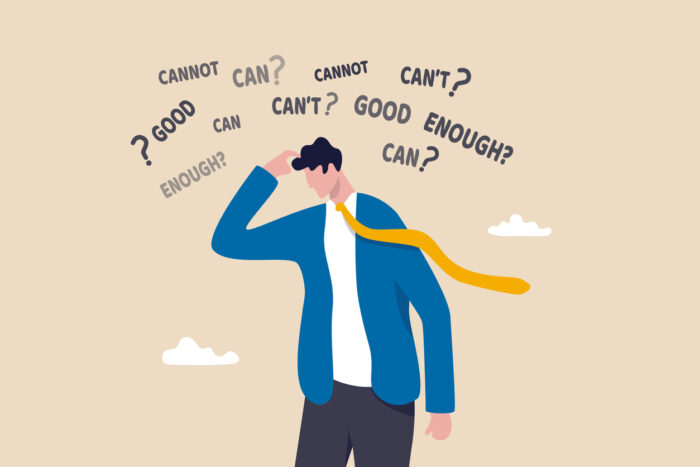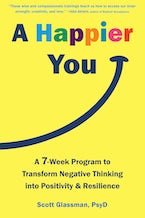By Scott Glassman, PsyD, author of A Happier You
To compare ourselves to others is human.
But it can also harm our social and emotional well-being. With the ubiquity of image-conscious social media, it’s easier than ever to be pulled down into a “who’s-better-than-me” haze of self-doubt.
When we get into the habit of measuring our success against others’ perceived achievements, we can come to rely on those benchmarks to determine how we should feel about ourselves. Unfortunately, others often paint a rosy picture of their lives, leading us to be unfairly critical of ourselves.
Social media platforms like Instagram fuel comparisons that can easily increase negative mood and anxiety levels, especially when individuals are looking at fitness, model, and beauty blogging accounts.
There are two types of social comparison to be on the lookout for.
Downward comparisons involve identifying those we feel we have accomplished more than, or who we think we stand in better relative position to. These comparisons can elevate our self-esteem and spark a sense of pride, although those good feelings may not last long. In contrast, upward comparisons are more likely to generate feelings of shame or inadequacy since we are judging that person as better off than we are in some way.
Upward comparison could also be seen as a type of “threat assessment,” a check to see if others are outpacing us in the areas of life we value most. If so, we may begin to work harder to reduce that gap and preserve a positive sense of self.
The degree of similarity we perceive between ourselves and our “comparison points” can influence these effects. Upward comparison, for example, may not weigh as heavily on our self-esteem when we’re comparing ourselves to a celebrity versus a coworker who recently received a promotion.
There are five ways you can reduce your tendency to engage in upward and downward social comparison:
- Try temporal social comparison instead. Researchers have found that when you compare your present self favorably to your past self, you’re likely to feel encouraged and more motivated to continue on a path of self-improvement. Here’s one question you can ask yourself to bring the comparison point inward: In what ways have I made progress over the past year?
- Find strengths and values you have in common with others. While upward and downward comparisons can breed competition, identifying strengths and values that you share with others can foster a greater sense of connection and parallelism. It is easier to admire someone who is successful without envy or negative self-esteem consequences if you also focus on similar qualities that have made you successful.
- Identify the core belief driving the comparison. Negative core beliefs about ourselves can propel us into the comparison lane. Two culprits are unlovability and worthlessness. If you can discover the situations that activate those beliefs—like a rejection—you can challenge their negative meanings. In doing so, you’ll be less likely to seek out downward comparison support for self-esteem.
- Challenge perfectionism. A driving force behind social comparison is a self-imposed need to be perfect. Perfectionism makes us hypervigilant to any signs that we are falling short of our unrealistic standards. If you can accept yourself as an imperfect person doing the best you can under the circumstances, then you are much less likely to feel less than when looking at someone else’s accomplishments. You also may be less likely to criticize others for their shortcomings.
- Limit social media use. Taking a break from Instagram, TikTok, Facebook, LinkedIn, and other social media can lower the likelihood that you will gravitate toward unrealistic representations of success, status, and progress. In this way, you are removing the tempting sources of comparison.
Give yourself grace when battling your social comparison itch. We all slip into these upward and downward modes. The more you practice stepping back from pole-position living, the more easily you’ll be able to step into a state of unpressured self-acceptance. And I think you’ll find it an even more rewarding place to be.
Scott Glassman, PsyD, is a licensed psychologist, and director of the Master of Applied Positive Psychology Program at the Philadelphia College of Osteopathic Medicine. He is founder of the popular wellness program, A Happier You.



 2024 Peace Playbook: 3 Tactics to Avoid Clashes with Your Partner
2024 Peace Playbook: 3 Tactics to Avoid Clashes with Your Partner